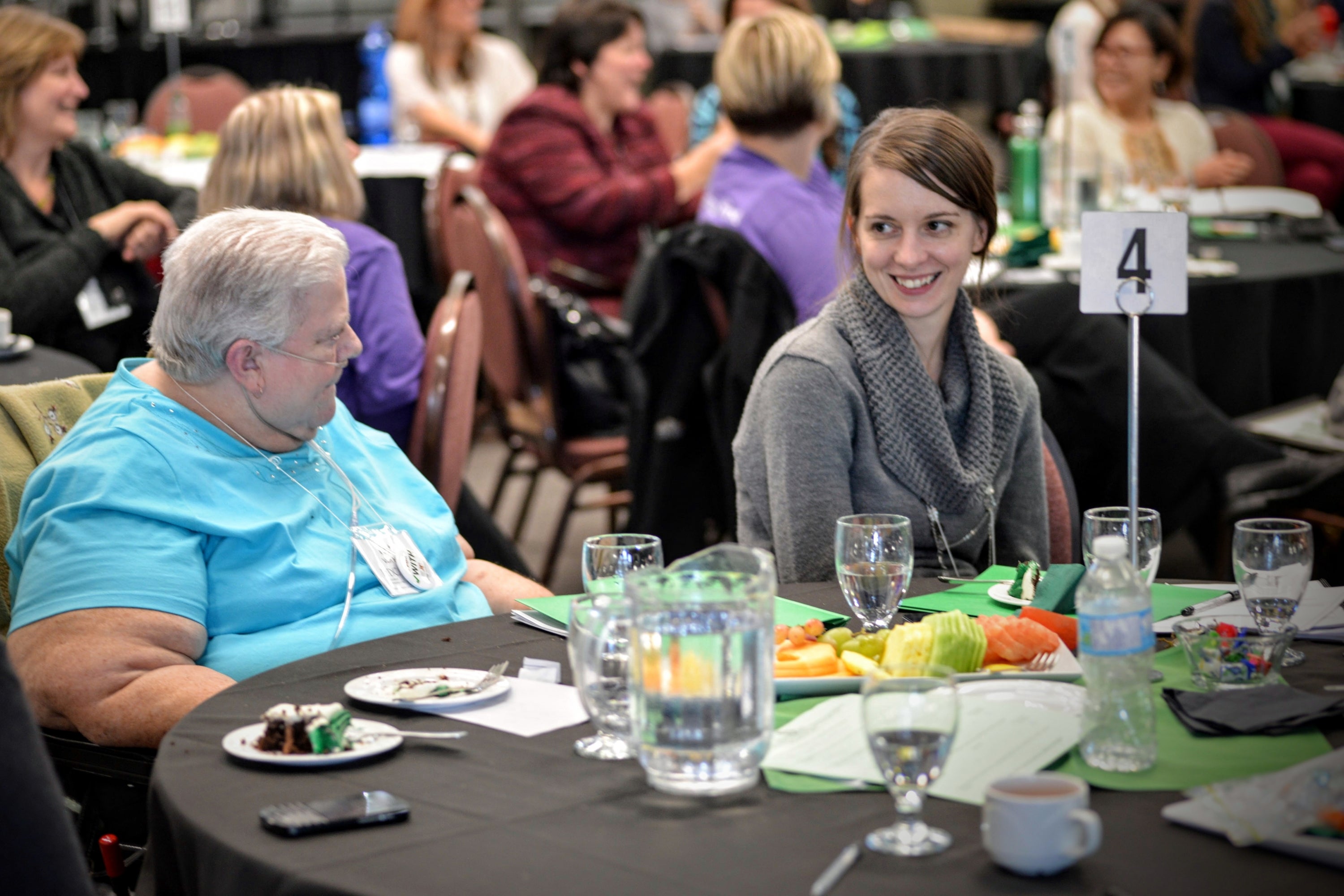
During this exercise, groups were asked to reflect on the characteristics of an ideal care experience and identify indicators that will tell us that culture change is happening and an ideal care experience is in place.
Below are some examples of what the groups came up with.
Caring experiences are at their best when:
there is nurturing, reciprocal and meaningful relationships between all in the care context including persons with dementia/residents, family members, and staff
- residents help each other; there are smiles and laughter; families know the names of staff; the management and staff hierarchy is broken down (are colleagues)
persons with dementia/residents, family members and staff all feel valued, appreciated and recognize
- residents trust that staff will listen and respond; families feel that they are heard and have a say; staff are well supported and have enough time to provide customized care
flexible, consistent, life-affirming and person-centred care is the norm and choices are respected and honoured
- residents’ culture is learned and honoured; family members’ opinions are valued; staff have enough time to build relationships with residents
persons with dementia/residents, family members and staff participate together regularly in meaningful, inclusive, and engaging activities
- persons with dementia/residents contribute to the life of the home; families participate, and are present in activities; staff have more time to participate in activities and the ability to be flexible and build rapport
living spaces and environments are safe, accessible and feel/are like home
- residents have a combination of multi-purpose spaces (social, quiet) with access to meaningful resources (e.g., books, cards, films); families can share birthdays and have family get-togethers;
staff have a dedicated space for them to recharge on their breaks
there is humour, laughter and fun
- residents report feeling happy and healthy, fun and safe; families are empowered to be involved (e.g., playing piano, singing, feeding, decorating, and attending various parties); staff are smiling and happy
persons with dementia/residents, family members, and staff have the education, knowledge, information, and support they need to live and care well
- residents participate in the delivery of every dementia care or culture change program; families experience lower burnout, less stress, less time off, and visits to the doctor; 100% of LTC staff across all departments receive training in diverse approaches to dementia care (at least annually)